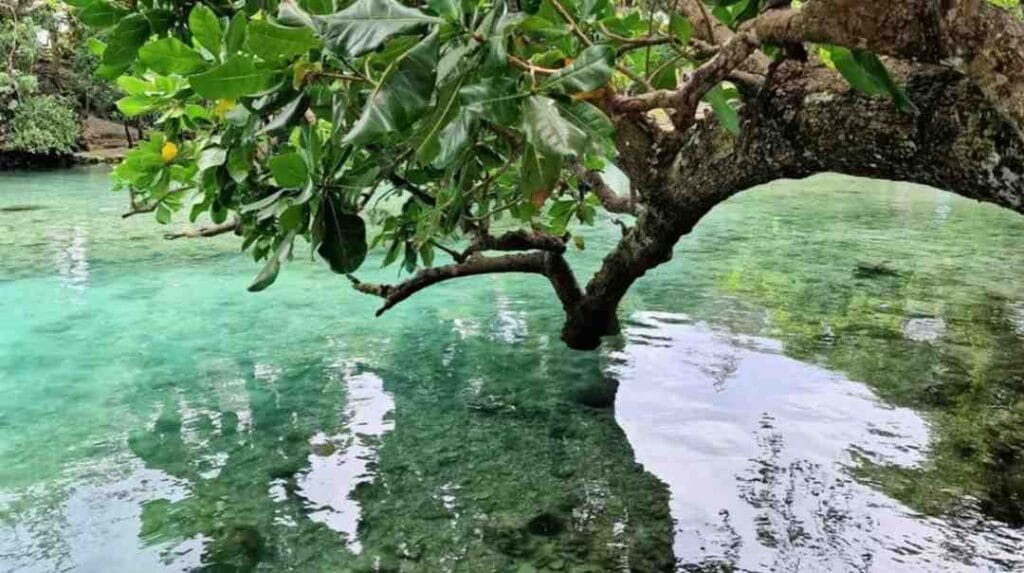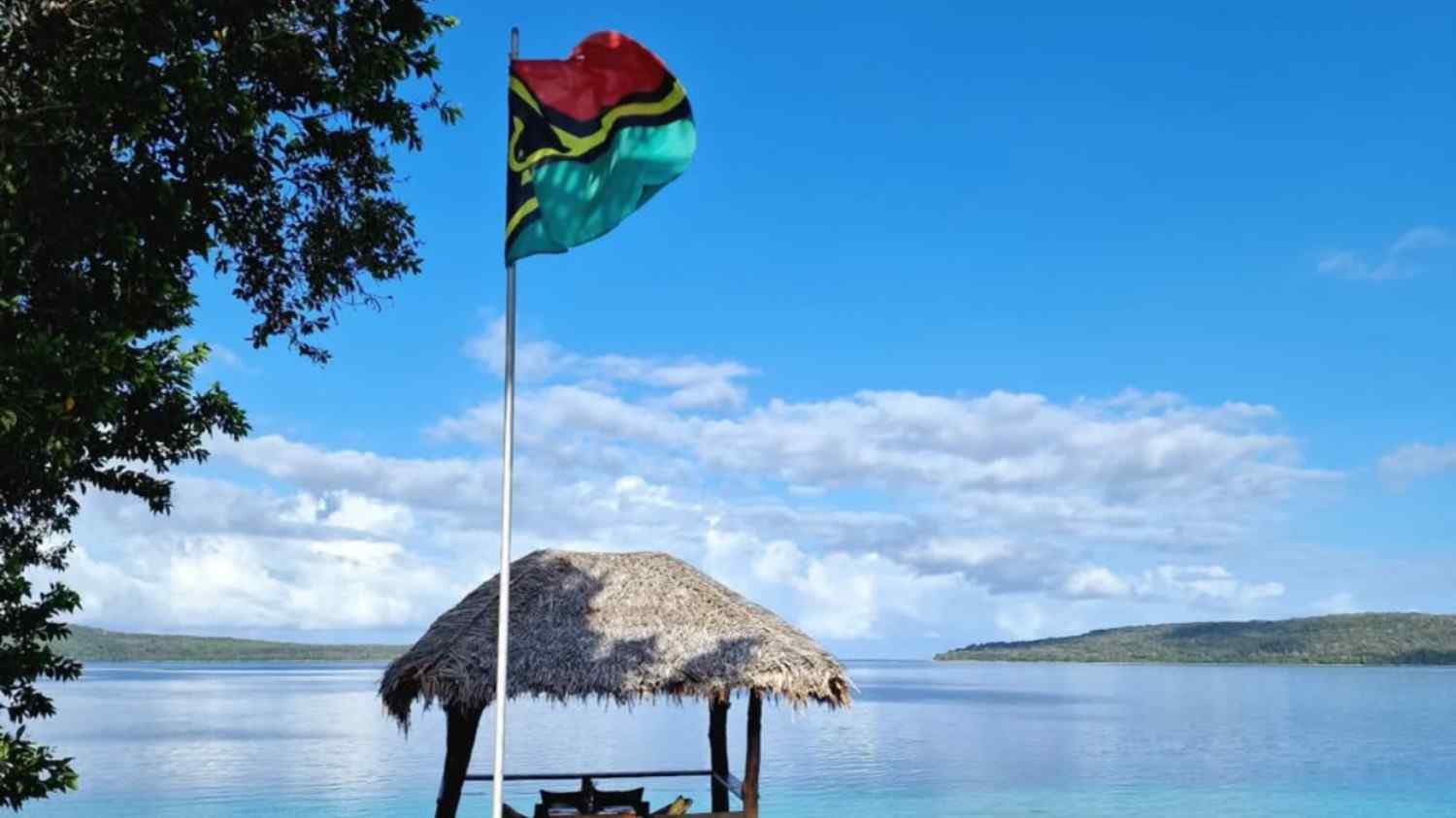Vanuatu, a small Pacific island nation, has thrust itself into the global spotlight with a groundbreaking legal move. The country, already grappling with the harsh realities of climate change, is leading a coalition of nations in seeking an advisory opinion from the International Court of Justice (ICJ) on states’ legal responsibilities regarding climate change.
This unprecedented case, set to be delivered today, could reshape how the world addresses the climate crisis. As Vanuatu’s coral reefs crumble and its coastal communities face displacement, the stakes have never been higher. Here’s what you need to know about this pivotal moment.
Vanuatu’s Climate Crisis: A Nation on the Brink
Vanuatu is living through the climate emergency in real time. Rising sea levels, intensifying cyclones, and saltwater intrusion are not distant threats—they’re daily challenges. In Havannah Harbor, once-thriving coral reefs now lie in ruin, bleached and broken by back-to-back cyclones and warming waters. “We used to know every inch of that reef. It was like a friend,” said John Warmington, a local diver who has witnessed the devastation firsthand.
Now, the reef is a graveyard, a stark symbol of the environmental collapse threatening Vanuatu’s way of life.
The situation is equally dire on land. Coastal villages face the grim prospect of relocation as encroaching seas erode their homes. In some areas, graves have been flooded, forcing families to confront the painful reality of moving ancestral burial sites. “It’s not fair that we have to face the consequences when we didn’t contribute to this in the first place,” said a resident of one affected community.
Vanuatu, like many small island nations, has contributed little to global emissions but bears the brunt of their impact.
The ICJ Case: A Legal Lifeline for Vulnerable Nations

Today, the ICJ is set to deliver its long-awaited advisory opinion on climate change, a case spearheaded by Vanuatu. The court will address whether states have a legal obligation to protect the environment and future generations from the adverse effects of climate change.
While the opinion won’t be legally binding, it carries significant moral and political weight. For Vanuatu and other vulnerable nations, it’s a chance to hold major polluters accountable and push for stronger global action.
The case has drawn widespread attention, with over 100 countries submitting arguments. If the ICJ affirms that states must take meaningful steps to curb emissions, it could set a powerful precedent. Legal experts suggest it might even pave the way for future reparations claims by affected nations. “This is a critical moment for climate justice,” said a spokesperson for the Pacific Islands Forum. “It’s about survival for us.”
Impact on Vanuatu: From Dying Reefs to Displaced Communities
Vanuatu’s environment and culture are under siege. The nation’s iconic coral reefs, once teeming with life, have been decimated by cyclones, warming waters, and invasive species like the crown-of-thorns starfish.
On land, rising seas are swallowing coastlines, forcing communities to consider relocating inland—a heart-wrenching decision for people deeply tied to their ancestral lands.
The human toll is equally profound. Schools close for weeks after cyclones, disrupting education, while farmers struggle to grow crops in increasingly saline soil. “After a cyclone, we would have nothing for months,” said Kaltang Laban, a farmer on Nguna Island. Aid organizations are stepping in, but resources are stretched thin. Vanuatu’s plight underscores the urgent need for global climate action.
Global Implications: A Turning Point for Climate Policy?
The ICJ’s opinion could be a game-changer. If the court rules that states have a legal duty to act on climate change, it could embolden vulnerable nations to pursue stronger diplomatic and legal strategies. It might also influence future climate negotiations, pressuring major emitters to ramp up their commitments.
However, the opinion’s impact hinges on political will. “It’s a step forward, but it’s not a silver bullet,” cautioned a climate policy analyst. “The real test is whether countries translate this into concrete action.” For Vanuatu, the hope is that the ruling will spur the international community to provide the funding and support needed to adapt to a changing climate.
FAQs: Understanding Vanuatu’s Climate Case
What is the ICJ case about?
Vanuatu is seeking an advisory opinion from the ICJ on whether states have a legal obligation to protect the environment and future generations from climate change.
Why is Vanuatu leading this effort?
As a small island nation, Vanuatu is highly vulnerable to climate impacts like rising seas and extreme weather, despite contributing little to global emissions.
What could the ICJ’s opinion achieve?
While not legally binding, the opinion could set a moral precedent, influence climate policy, and potentially support future legal claims by affected nations.
How is climate change affecting Vanuatu?
Vanuatu faces severe impacts, including dying coral reefs, coastal erosion, and displacement of communities due to rising sea levels and cyclones.
Disclaimer
The ICJ’s advisory opinion is not legally binding and does not impose enforceable obligations on states. The information in this article is based on available sources and reflects the situation as of July 25, 2025.
Vanuatu’s bold move at the ICJ is a clarion call for climate justice. As the world awaits the court’s opinion, the message from this tiny Pacific nation is clear: the time for action is now. Will the global community rise to the challenge? Share your thoughts below.
Sources: Information from web results and posts on X.
